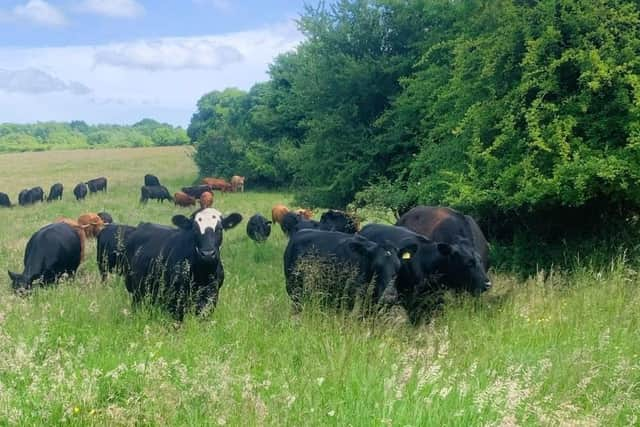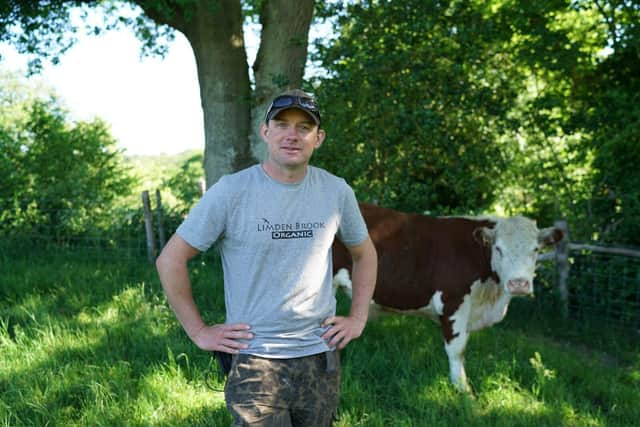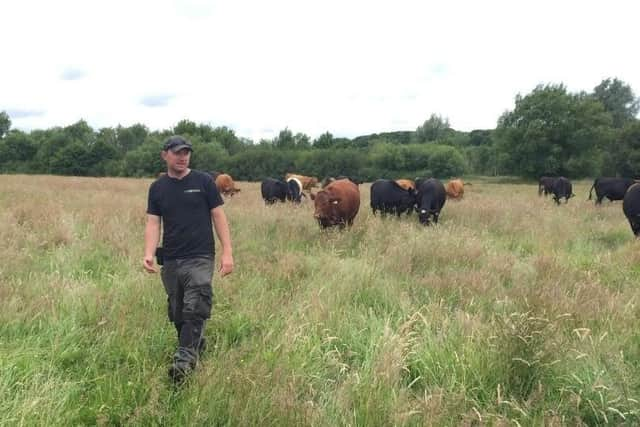Etchingham cattle farm restoring nature and producing nutrient rich food


Farmers Sam and Becky Newington, who run Limden Brook Organic near Etchingham, took part in a biodiversity case study series by Pasture for Life that showcases how farmers are restoring nature with 100 per cent pasture-fed livestock.
After spending time in New Zealand and Australia, the pair said they were inspired by seeing the efficiencies and potential other benefits brought about by rotational grazing systems.
Advertisement
Hide AdAdvertisement
Hide AdOn return to their farm in the High Weald AONB, this led them to become Pasture for Life members in 2018 and certified since 2022.


They said through their 100 per cent pasture-fed system, they have cut costs, the fields are teeming with life and their 160 Red Poll cattle used for conservation grazing are healthier than ever.
The pair added that Pasture for Life membership has helped the farm change to a low input and more nature-based system, using nature friendly farming methods and making better use of their grassland.
Sam and Becky said they have managed to stop feeding concentrates and can out winter their animals, thereby reducing the amount of bought in feed and bedding, as well as reducing contracting costs.
Advertisement
Hide AdAdvertisement
Hide AdRotational grazing techniques use the cattle as management tools to mimic natural processes, which stimulates plant growth to sequester carbon and improve soil fertility.


The pair said this has noticeably boosted the variety and number of plants and animals.
Grassland across the farm is varied including Yorkshire Fog and cocksfoot, with meadow flowers; yarrow, vetchlings, birds foot trefoil, meadow foxtail, and orchids. A huge number of insects are attracted by the flowering plants, dung and soil disturbance from the cattle, as well as small mammals including voles, dormice, field mice and bats.
The farm said it sells beef exclusively through local butchers.
Advertisement
Hide AdAdvertisement
Hide AdAn overview of the Limden Brook Organic case study can be found here: pastureforlife.org/biodiversity/biodiversity-case-studies/sam-and-becky-newington-limden-brook-organic-1-3/
And the wider series by Pasture for Life here: pastureforlife.org/biodiversity/biodiversity-case-studies/